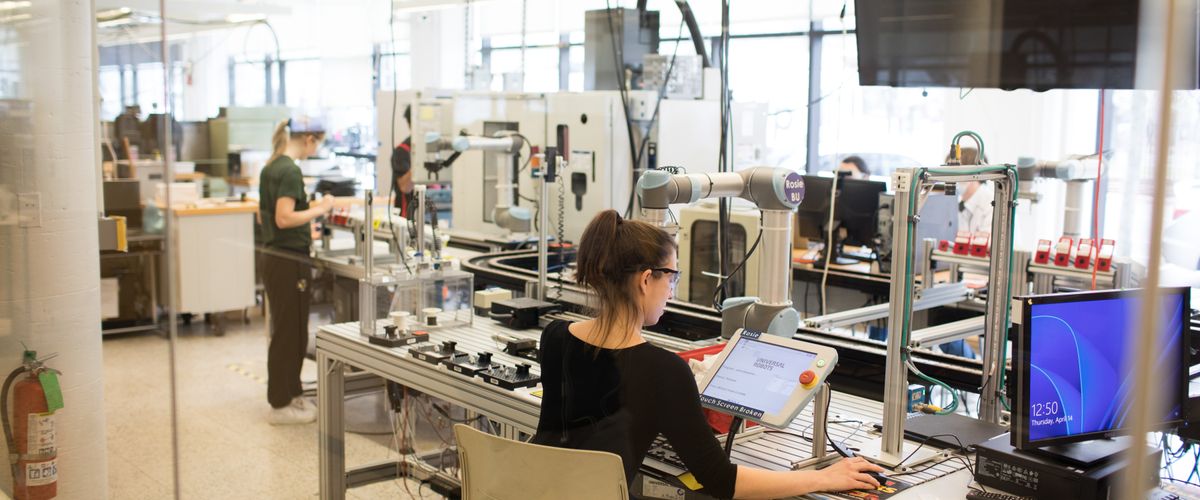New 3D Metals Printer Keeps EPIC on Cutting Edge of Product Design & Manufacture
GE donation gives students, researchers an edge
By Michael Seele
More and more products – from custom-made orthodontic braces to hearing aids – are commonly made using 3D printing and nearly every engineering school has 3D printers for students to work on. But virtually all of them print some form of plastic. With the addition of a metal-printing machine donated recently by GE, the College of Engineering and the Engineering Product Innovation Center (EPIC) will remain on the cutting edge of education and research in this rapidly evolving field.
GE considered applications from 250 colleges and universities around the world before selecting just eight to receive a metals 3D printer. Boston University is the only engineering school in the Boston area to receive one.
As the range of materials used in 3D printing – or additive manufacturing as it’s known in industry – expands from plastics to metals, the commercial possibilities are expanding as well, said EPIC Director and Professor of the Practice Gerald Fine (ME, MSE). Students, as well as materials researchers and employers like GE, are eager to master the associated design and manufacturing challenges. Fine says the new Product Design & Manufacture master’s degree program will particularly benefit from the addition of a metals printer, one of only about two dozen or so to be housed in engineering schools nationally.
“This will ensure that our new degree program is working with state-of-the-art tools in a rapidly evolving field,” said Fine, adding that the machine will be integrated into the College’s first graduate course in additive manufacturing.
“Adding metals to 3D printing changes the whole paradigm in design and manufacturing,” Fine said. “The design rules are different. You are designing products differently.” He noted that GE has begun 3D printing jet engine fuel nozzles. The nozzles used to be manufactured by assembling approximately 40 individual parts, but 3D printing reduces the part count to one.
The addition of metals to additive manufacturing also poses challenges for materials researchers, he said, noting that professors Soumendra Basu and Uday Pal (both ME, MSE) were involved in the effort to acquire the new machine.
“In additive manufacturing, the properties of metals can be different from what materials scientists are accustomed to,” Fine said. “Also, the range of metals that can be 3D printed now is small, so there is interest in developing new materials.”
The donation marks a further deepening of the relationship between the College, EPIC and GE. The company has been on EPIC’s Industrial Advisory Board since EPIC’s inception.
“They understand what we are trying to do and they’ve given us an understanding of their needs, which includes hiring more students who understand additive manufacturing and digital design. It’s a win-win,” Fine said.
